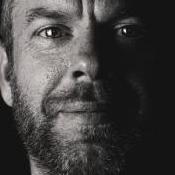
bryanmusk
Members-
Posts
3 -
Joined
-
Last visited
About bryanmusk
- Birthday 12/05/1989
Profile Information
-
Gender
Male
-
Location
Colorado Springs, Colorado
-
Application Season
2016 Fall
-
Program
Operations Research, MBA
Recent Profile Visitors
594 profile views
bryanmusk's Achievements

Decaf (2/10)
0
Reputation
-
Hello again! attached is another sample essay I wrote for Analyze an Argument for the GRE. I would really appreciate any feedback, to include what a realistic score this essay would receive (0-6). I select my prompts from ETS.ORG and use Microsoft word pad so there is no spell check. Thank you in advance for any help and feedback you provide! Below is the prompt and essay: prompt: The following appeared as part of an article in a business magazine. "A recent study rating 300 male and female Mentian advertising executives according to the average number of hours they sleep per night showed an association between the amount of sleep the executives need and the success of their firms. Of the advertising firms studied, those whose executives reported needing no more than 6 hours of sleep per night had higher profit margins and faster growth. These results suggest that if a business wants to prosper, it should hire only people who need less than 6 hours of sleep per night." Write a response in which you examine the stated and/or unstated assumptions of the argument. Be sure to explain how the argument depends on these assumptions and what the implications are for the argument if the assumptions prove unwarranted. ----------------------------------------------------------------------------------------------------------------------------------------------------------------------------------------------- A recent study found that exectuives who sleep less, tend to perform better at work. The result, they claim, is a more prosperous firm. Howver, the amount of sleep buissness executives receive does not drive a firm to prosper or fail. There are numerous other variables and invalid assumptions this study makes. Relying on a large sample size of 300 executives, the study portrays an overconfident attitude that its large of amoount of personnel examined provides more legitmate results. What the study fails to differentiate is how different each executive truly is. Each executive has different experiences both at work and at home. The study fails to go into further detail on which individuals are married, have children, lead large teams vs small teams, and enjoy thier work. An excutive who is single, manages a small technical team of 8 people, and enjoys his or her job will likley have a larger impact on a firm's successus than the executive who is married, has 3 children, and leads a diverse team of 30 people full of comnflict regardless of how much sleep they each get at night. They are so many other factors in the professional and personal life of each exectuive that can effect thier perforamnce at work and the overall success of a firm. This study relies too much on a simple response of how much sleep each exetucive gets instead of collecting and analyzing a plethora a data easily avaiable as well. IF the study did in fact isolate other variables, such as marital status, scope of repsonsibilty, and number of children then maybe sleep could be in fact the determinent of success. When all other variables are held constant it is much eaiser to see which one truly affects an outcomes. The article seems to also assume that high profit margins and fast growth are the key for a buisness to prosper. While these may both be solid indicators of a firm's success in a single snapshot, they don't necessarily determine a prosperous life cycle and model for a buisness. The article failed to mentioned is the data collected for profit margin and growth was simply collected in a single quarter or if over a year. If it was indeed in a small time frame, it could likely be a result of coincidence due to favorable macro-economic condtions. A strong market can make any buisness falsely inflate with growth and profit with staff of sleepless exectuives. Overall, the study really did a poor job demonstrating that the individuals who sleep less truly enable a firm to prosper. There is much room to detemrnine a prosperous buisness model. Had the study outlined the time frame in which the data was collected (quarter) along with several key variavbles such as profit and revenue then it is possible that to more confidenlty infer that these sleepless executives have consistent results and their sleep habits may truly affect performance. Quality of sleep is an enormous variable that the study fell short to address. The qualtiy of sleep an individual recives varies greatly based on age, diet, daily stress, history of injuries, and the type of mattress and bed. It could be very likely that the study neglected the age of the exectuvies. It is possible that the older (50 years plus) excetuives, who biologically dont need as much as thier younger counteroparts, thrive on 6 hours of sleep. The younger exectuvies in thier thirties simply are not adapted to sleeping such few hours. Additianlluy, the senior exectuives also have 20 plus years of experince on the younger exectuvies. This could also likley be the result for the higher permfroamnce and have nothing to do with sleep at all. The study is too ambigous in assuming that all exectuives studies incur the same quality of sleep without addressing the other important factors. If they considered an age bracket for exectuvies, matched that withthe number of hours slept, and still discovered less sleep led to higher performance then that would possbily suffice. Assesing a sample of people's sleep hours against thier performance is simply not sufficient to condlcude that sleep determines performance of an individual. There are many other variables to consider.
-
I plan to apply to the same program this fall, but the M. ENG program in OR. I too would like to hear what anyone has to say. I also intend to pursue the 1 year MBA program after completing a M. ENG program in OR (ideally both at Cornell). Thanks, Bryan
-
bryanmusk started following Cornell ORIE?
-
Hello, I am currently studying for the GRE and seeing if there is anyone out there willing to read my practice essay and provide me with some feedback, and a realistic score I would likely receive on the GRE (0-6). I really appreciate anyone who takes their time to read it and provide me with valuable feedback. Thank you in advance!! This essay I wrote is for an Analyze the Issue response. My method of practice is to use Microsoft Note Pad since there is no spell check. I put the prompt on the same screen, and have a visual 30 minute timer going as well. Feel free to steer me in a better direction to execute my training if you think I can improve it. Also, I derive my prompts from ETS.ORG (https://www.ets.org/gre/revised_general/prepare/analytical_writing/issue/pool) Below is the prompt, followed by my response essay. Writing prompt: It is no longer possible for a society to regard any living man or woman as a hero. Write a response in which you discuss the extent to which you agree or disagree with the claim. In developing and supporting your position, be sure to address the most compelling reasons and/or examples that could be used to challenge your position. ------------------------------------------------------------------------- Although societies across the world have advanced greatly overtime and the standard of living for many has improved, the dire need for help and to be saved will always persist. Some would argue that society can not deem any living man or woman a hero. However, society dies in fact have a consisitnetn need for a hero and obligation to recognize one. Due to the timeless need and respect for heroic actions, soceity will always have the special title "hero" to commemenatre living men and women who act as savior in a time of need. The title "hero" is special coveted role, that socieites will always don to special men and women for eternity. No matter how advanced society may become, their will alway be a need for someone to help in moment of distress. Those who courageously and successfully respond to these situations are heroes. When performed on a large scales, these actions are recogized by society as a whole. The end result is the title hero for the man or woman who demonstrated great courage. For example, a man drving by a car on fire and notices children inside decides to pull over and get them to safety. He succsullfy gets them out of the car before the fire engulfs the vehicle in its entirey. A man who has perfroemd these actions is nothing short of a hero. Any society would recognize the actions of this men, and declare him nothing short of a hero. His status as living or deceased bears no weight on his legacy as a hero. In today's society, the term hero is far from being reserved for those who have past and actions resonate a leganrdary story of heroic deeds. As a whole, we have become a more individualistic society. It is more common place to see people in a society consumed with his or herself. Social media profiles, customized smart phones, and inidivual aciveiment have promoted a culture in which the individual can flourish. a selfless herioc act is rarer today in such a culture and when they do occur they most cetianly hold more weight. In our society we have numoerus heroes who break away from indiviual hedonism, and exectue selfless actcs of courage. Society is far from reserving the title hero to those who are no longer alive. The trait of being a hero is absolute in nature. It is not a reltive term, but a title that society unanimously agrees upon. Any man or woman alive today can find themselves in a situation in which they act heroically and society bestows upon them the title "hero". A hero commits an act the is inherently selfless and sacrifical to an extent. A living person is more than cpaable to earn the title hero from society. Although the title hero can be merrited by any living man or woman, it be tougher to earn as acts of courage and valiance have been remembered in history. When earning the title hero, one must considered those who have come before him and really qeustion if he is worhty of the title. It would be easy to infer that it is no longer possible to regard any living man or woman as a hero. Often it can become overly competive to earn the tite, and soceity may relucant to make the observation at times. While heroes exist amongst society today, they may be relcuantly observed. Any lving man or woman can earn the title hero while alive from society. It is not soley lmited to those of the past and of folklore. It may be more and more difficult to differtiaite a hero today, but the need for a hero in every society will always be there.


